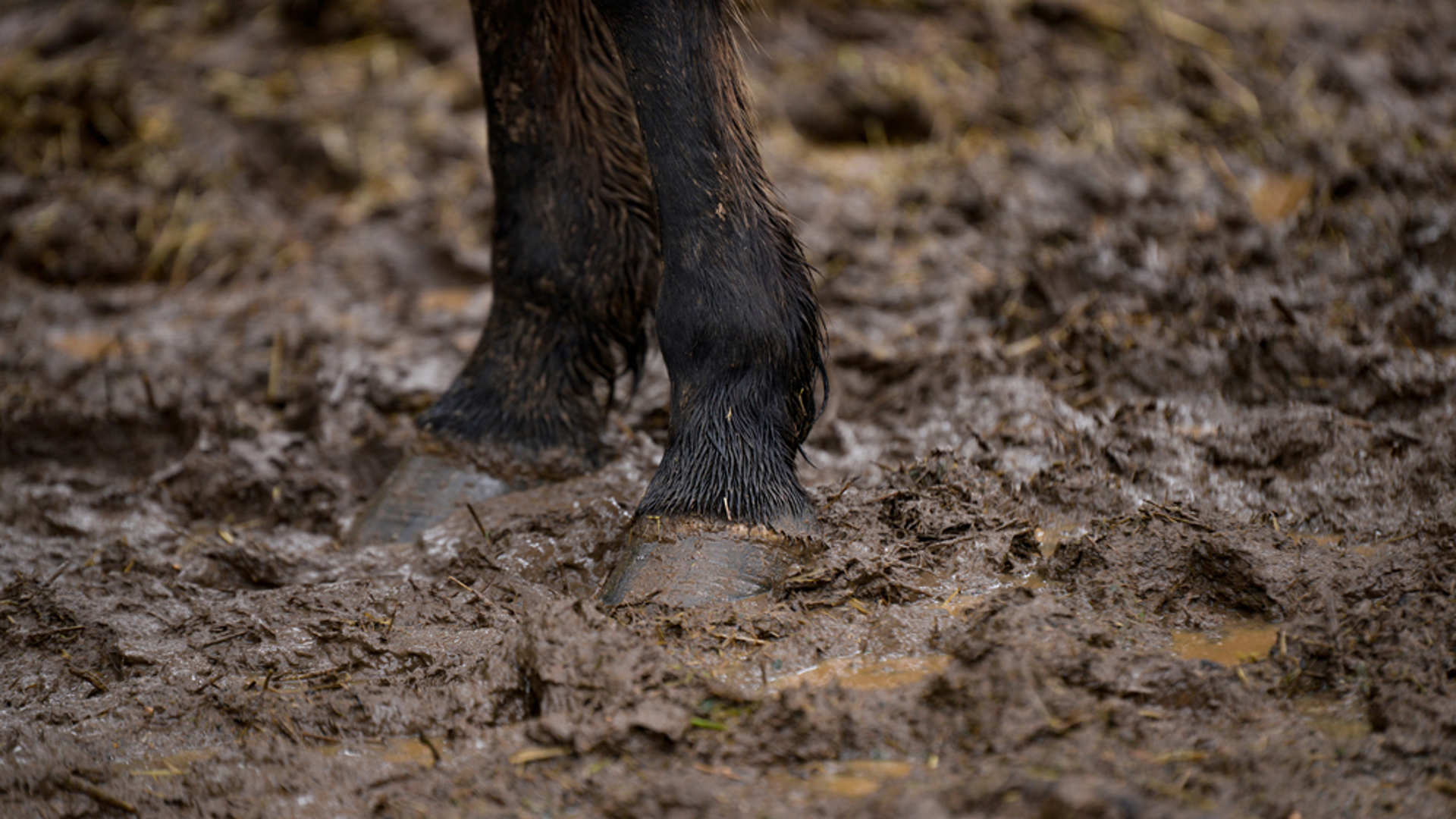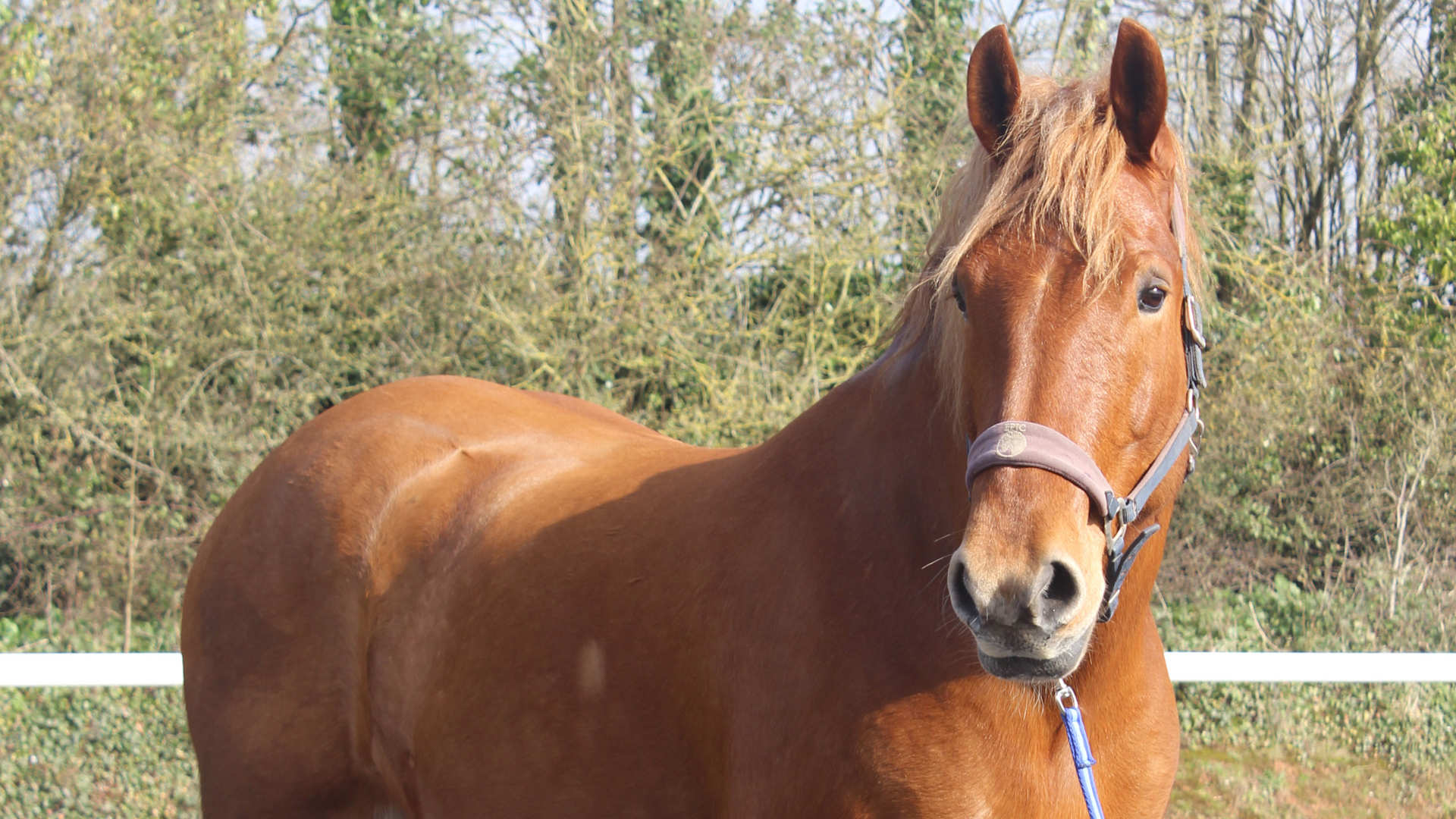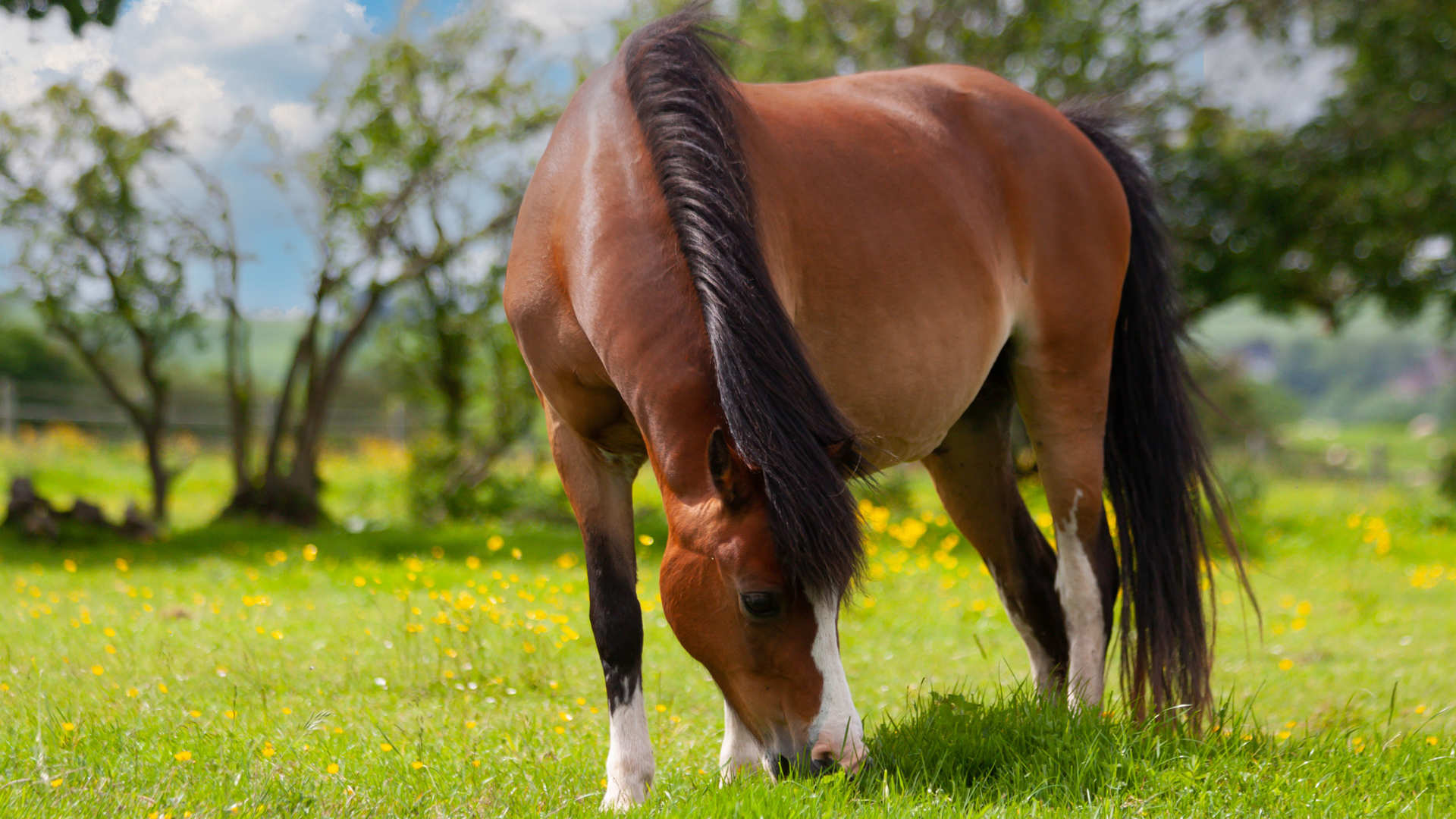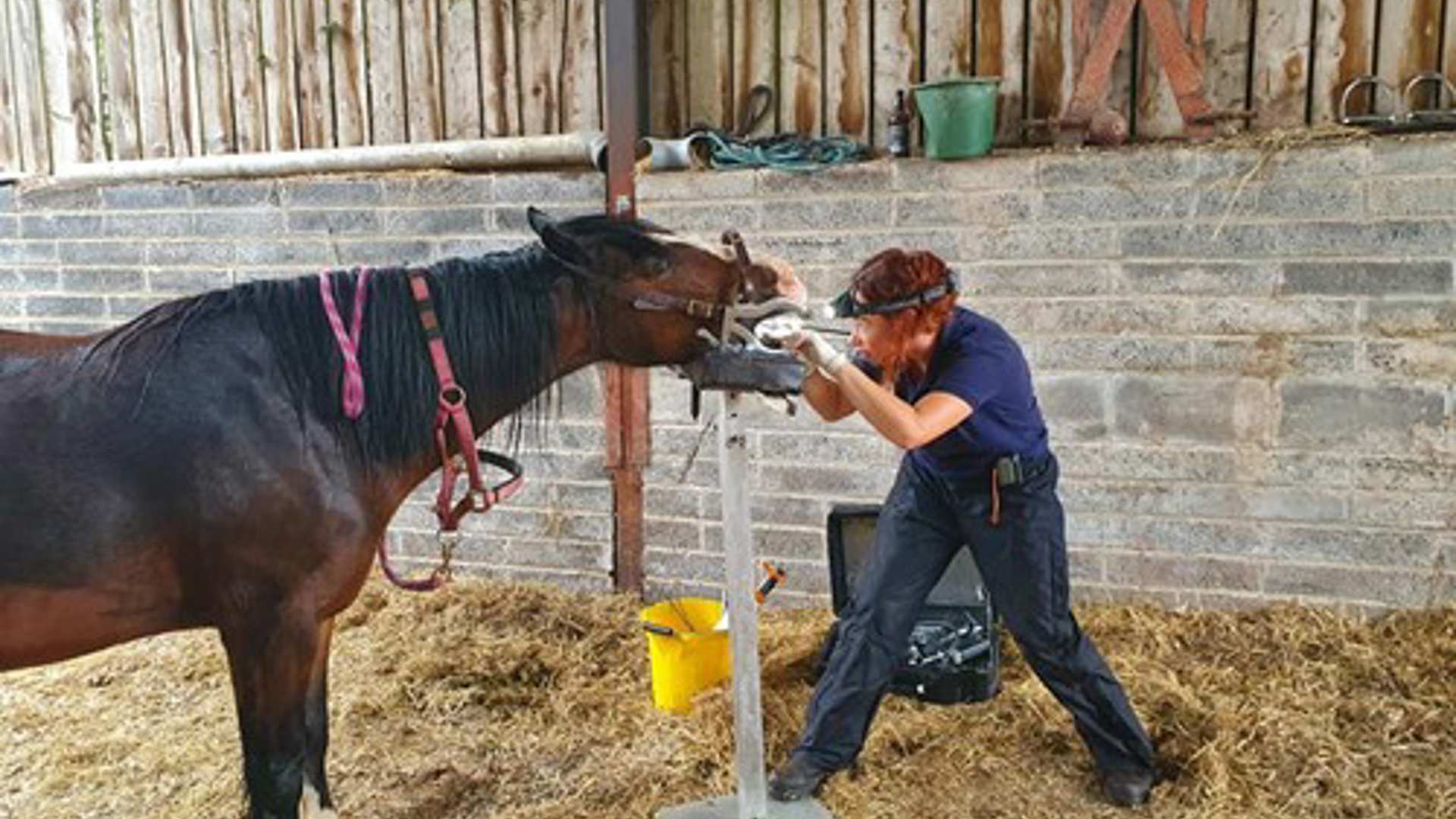
Equine Dental Care
Dentistry is an important part of your horse, pony or donkey’s healthcare and should be assessed at least every 12months. Some conditions may require more frequent visits. Modern horses need regular dental examinations because their diet is often different and typically less fibrous than natural grazing. Equine teeth are different to ours and adult teeth erupt from their gums slowly over their lifetime with the ever-lengthening tooth needing to be worn away evenly by grinding against the opposing tooth.
There are common places where horses can develop sharp points which may lead to ulcerations of the inner cheek or tongue. These tend to be on the outside edge of the upper cheek teeth and on the inside aspect of the lower cheek teeth. There can also be an overgrowth of tooth material which can prevent proper grinding affecting the horse’s ability to digest food. A key reason to have yearly dentistry appointments with your vet to maintain a good level of comfort.
If your horse is eating asymmetrically, showing a preference for one side of the mouth or dropping out partially chewed balls of forage, then a vet needs to assess their teeth. Foul smelling breath can indicate food material packed between the teeth which will need careful removal and ongoing management to avoid an increased risk of fractures. Well maintained teeth help minimise the risk of certain types of colic such as impaction colic. This is essentially when part of the digestive tract becomes blocked with food and is more likely when the teeth are not grinding properly.
All our vets are equipped to carry out routine dentistry. Key equipment includes a mirror, headtorch and motorised dental rasp. We offer intravenous sedation at no extra cost to make the process more comfortable and less stressful. We can diagnose diseases and disorders of the teeth and oral cavity and advise on further management required. We have portable x-ray equipment to investigate dental pathology whilst on the road. Our clinic is well equipped including stocks which allow your horse to stand quietly and safely.
Stay in the know Related articles & advice
-
Mud Fever

-
Colic

-
Laminitis

